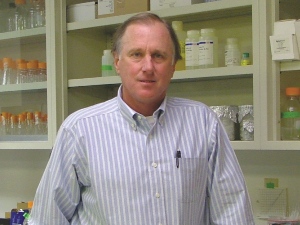If you’re the type of person who gets jittery or can’t sleep for hours on-end after drinking a cup of coffee, there may be a simple explanation: genetics, according to Grant Bitter, CEO of the Valley startup company, Genomic Express. There are certain genes tied to how quickly or slowly a person metabolizes caffeine. And people who metabolize slowly may be more susceptible to a host of health problems. The best way to know, and plan accordingly, is to get tested for those genes. Bitter, a former Amgen scientist and owner of the Valley-based biotechnology research and consulting firm BitTech, launched Genomic Express in 2007 to offer low-cost direct-to-consumer genetic testing. The Westlake Village-based firm offers single cell genetic tests for pre-dispositions to metabolizing caffeine slowly and certain types of athletic performance. It also provides a service to interpret DNA tests for colon or rectal cancer. “My business strategy is that I think more people are interested in paying less money for something that’s relevant to them,” said Bitter, who has four employees and is self-funding the operation. “When they get the results of these tests, there are positive actions they can take.” Genomic Express offers a Web site with educational information about genetics, genetic counseling over the telephone, DNA test kits, and a confidential secure site for people to review the results and potential health ramifications. Bitter performs the genetic tests in Westlake Village. The non-medical athletic tests, which run $179, help athletes, coaches and trainers determine the composition of a person’s muscle fiber. The results can show whether athletes will perform better in power and/or endurance events. Caffeine test The non-medical caffeine test, which costs $195, searches for a gene tied to a family of proteins that affects metabolism of certain chemicals and drugs. About 25-50 percent of the population carries this gene, said Bitter. The service to interpret DNA tests for colon or rectal cancer costs $160. And Genomic Express contracts with another firm for genealogy testing. “This is a really nascent industry, but I think a number of genetic technologies are going to be very powerful,” said Bitter. “Most of the interest in Genomic Express so far has been in the athletic tests. We’re working with college-level coaches and prominent trainers.” Bitter said the genetic testing industry is growing rapidly. There’s a lot of interest in using the data to tailor medical treatment for one’s personal genetic makeup. A couple California-based genetic testing companies have also popped up in the past couple years with substantial help from outside investors. Different firm Bitter said his firm differs from the others because it provides single cell testing for specific genes and health issues, versus whole genome scans, and is thus able to charge less. Redwood Shores-based Navigenics, Inc. launched in November 2007 with $25 million in funding from investors such as Kleiner Perkins Caufield and Byers, Sequoia Capital and MDV-Mohr Davidow Ventures. The company provides consumers with a saliva-based test and whole genome scan and analysis. It tries to match DNA against scientifically and clinically vetted gene/disease correlated studies. The initial fee is $999, which includes the genetic analysis, first 12-month membership, and unlimited genetic counseling. Subsequent years cost $199 per year for ongoing access to genetic and health updates. It also has a Web component. Genentech, Google and New Enterprise Associates invested an undisclosed sum into Mountain View-based, 23andMe, Inc. The firm, which also opened in 2007, performs DNA analysis and provides web-based interactive tools. Like Navigenics, its flagship services cost $999.
